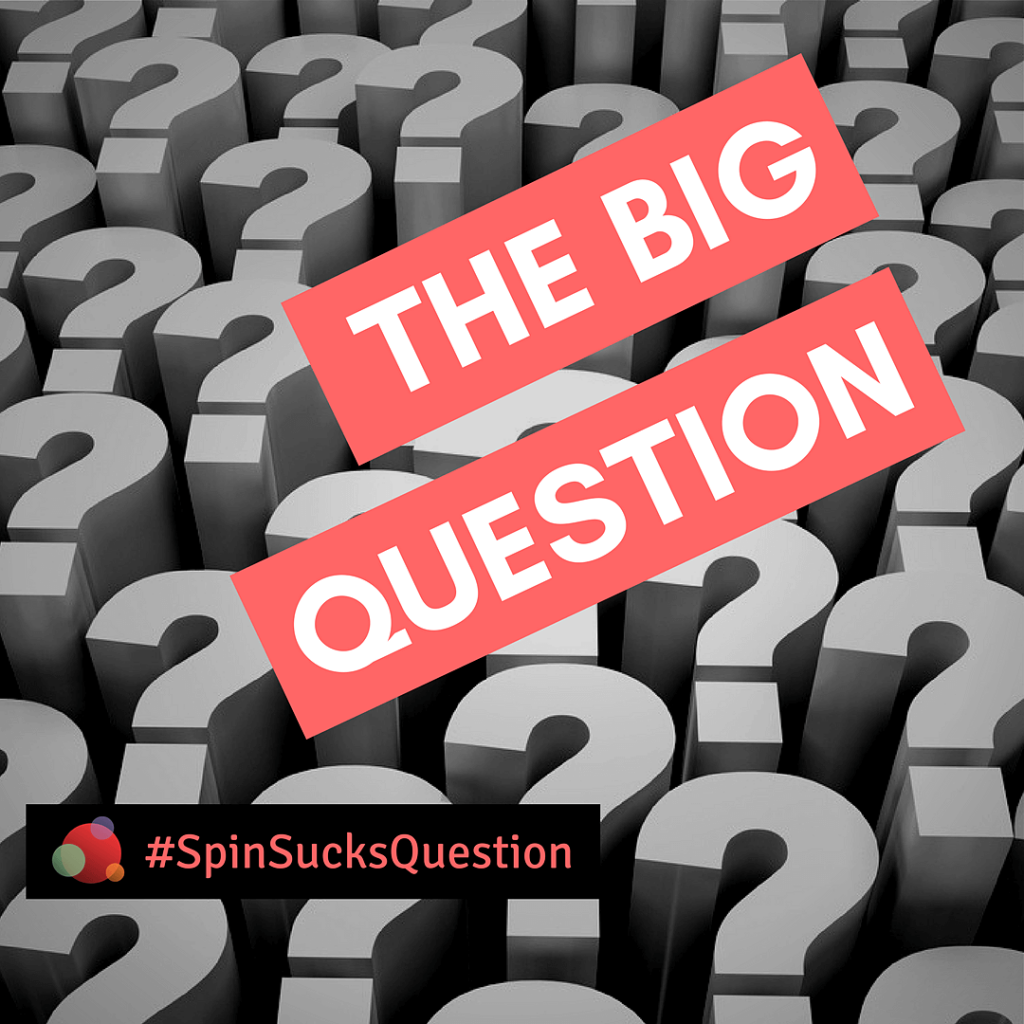 PR buzzwords are a double-edged sword for our industry.
PR buzzwords are a double-edged sword for our industry.
We are responsible for many of them gaining traction in the first place (see what I did there?), but we’re also the first ones to call for pitching them into the thought leadership abyss.
That’s why for this week’s Big Question we asked: What buzzwords should PR pros banish?
Here’s what you told us.
50 PR Buzzwords to Stop Using NOW
Here are the 50 most-frequently mentioned PR buzzwords from our entirely unscientific—but extremely fun—polling:
- Bandwidth
- Buckets
- Build buzz
- “Cascade the purpose”
- “Circle back”
- Disrupt
- Dynamic
- End user
- Engagement
- Epic
- Exclusive
- Game-changer
- Ground-breaking
- Guru
- Honored
- Humanize
- Impressions
- “Industry leader”
- Influencer
- Innovative
- Jedi
- Leading
- Leverage
- “Low-hanging fruit”
- Market-leader
- “Marketing alignment”
- Massage
- Maven
- “Next level”
- Ninja
- Nugget
- Pipeline
- Positioning
- Revolutionary
- Runway
- “Sets the new standard”
- Solution
- Spin
- Storytelling
- Strategic
- Synergy
- “Thought leadership”
- Top
- “Touch base”
- Transparency
- Trending
- Utilize
- Wizard
- World-class
- Yummy
The Influencer Backlash
Despite the high levels of interest and investment in influencer marketing, PR pros have had it with self-proclaimed influencers—and brands throwing money at them.
Influencers = most overhyped because (please don’t hate me for saying this) PR at least in my experience doesn’t understand the full spectrum of influencer metrics.
Until that day comes (fluency in influencer metrics in the PR world), then PR shouldn’t use the word ‘influencer’ freely.
The giant PR firms’ influencer vetting is dreadful. Trust me, I’ve seen it first-hand since 2012.—Alex Yong
Katie agrees with Alex.
In my opinion, the PR buzzword that has lost virtually all meaning is ‘influencer’—thanks in large part to its overuse and incorrect application.
While influencer campaigns are certainly popular and common and are a viable channel for PR agencies to drive brand awareness, the definition of an influencer is largely in flux.
Is it someone with 1,000+ Twitter followers, a new YouTube star with a niche but loyal audience, or a celebrity with millions of Instagram followers?
The emergence of new platforms has opened the door for just about anyone to be considered an influencer but determining who is worth pursuing for a PR campaign can be difficult.
The real key to a successful campaign is in the metrics—a true influencer must be evaluated on their exposure, their level of participation in a conversation relevant to your client, and their ability to drive ROI through a call to action that has a tangible/measurable result for your client.
Until then, PR agencies choosing largely irrelevant, albeit popular personalities, continues to reinforce why influencer is a PR buzzword in need of refinement.— Katie Creaser
Your “Disruption” Isn’t Ground-breaking, Either
Start-up disruption has seemingly given us an endless stream of innovative, ground-breaking new technology we can leverage…or has it just given us more PR buzzwords to annoy journalists with?
My least favorite buzzword is ‘disruptive’—startups are massively ‘disrupting’ some industry, but then you read the press release and realize that they have in fact found a cheaper way to produce and sell belt buckles.
It’s a great achievement on its own, does it really need to be hyped as ‘disruptive’ to make the news?
I’ve started to replace the phrase with ‘tickling the industry giants’ in my head when i read, it’s more fun that way.—Iva Glavinic
Jason says the jargon we use has jumped the shark.
As someone who spends hours each week reading and writing press content, the thing that makes me cringe the most (and often move on to the next pitch) is the abuse of tired jargon.
Granted, it’s difficult to surmise when a hip indie buzzword has jumped the shark.
One way to not sound douchey is to just clearly say what you mean instead of regurgitating last week’s ‘low hanging fruit.’
Jargon doesn’t make you an ‘influencer’ and it most definitely doesn’t qualify you as a ‘disruptor’ in ‘the space’—it kind of just makes you sound like that guy on the conference call who’s trying too hard. — Jason Myers
And Lindsey says no idea is an original one.
As a publicist, the most over-hyped PR buzzword we need to banish is ‘groundbreaking.’ Most ideas/products/services are not innovative and have all been created before.
Companies are now marketing the same products that they’ve had for years, adding a new color or upgrade and calling it groundbreaking. That doesn’t make it groundbreaking or newsworthy for that matter. It’s simply re-branding. — Lindsey Walker
Honing Our PR Skills for the Future
I’ve been thinking a lot about the future of PR, and how our jobs are going to change in the next three to five years, thanks to continuing technological advances.
It can be hard to keep up!
We all know we need to keep our skills sharp, and continue to build them as the nature of our work changes.
But where should we focus first?
That’s why this week’s Big Question is:
What is the most important skill for modern PR pros to master to be successful over the next three years, and why?
You can answer here, in our Slack community, or on the socials (use #SpinSucksQuestion so we can find you).
And let me incentivize you a bit: If you answer the question and we feature your answer, you get a follow link to your site.
I’ll even let you choose which page you’d like us to link to.
So get to answering!